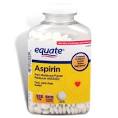C-reactive protein (CRP) is a globular protein that increases in the serum as a response to injury or inflammation. It turns out to be a good predictor for cardiovascular disease. A study appearing in the Journal of the American Nutraceutical Association (2005;8(1):43-44), involving more than 27,000 women, found that CRP was a better predictor of cardiovascular disease than LDL (bad) cholesterol.
High CRP levels are actually associated with increased mortality from all causes. A CRP level greater than 3 mg/L in men was found to increase the likelihood of death by nearly two-fold, according to research appearing in Clinical Chemistry (2008 Feb;54(2):335-42). The high CRP levels increased the likelihood of heart attack by a factor of 2.15 and increased the likelihood of cancer by a factor of 1.65.
A recent study appearing in Free Radical Biology and Medicine (Oct 10, 2008) randomly assigned 396 non-smokers to receive either vitamin C, vitamin E or a placebo. Vitamin C lowered CRP in the subjects with elevated CRP, but not in those with normal CRP levels.






